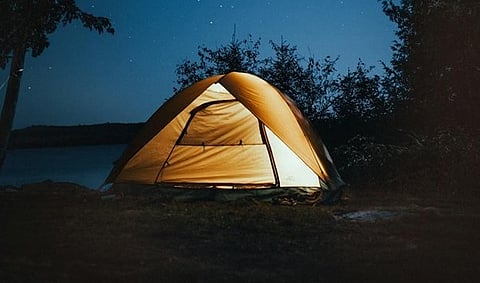First Camping Trip - Here's What You Need to Know
You might think camping means sleeping on rocks and eating burnt hot dogs. In reality, a little planning transforms a weekend under the stars into an epic micro vacation. Fresh air, starry skies and that triumphant feeling when you conquer a stubborn tent pole can feel more luxurious than a five-star spa. Plus, there is a certain primitive joy in swapping Wi Fi for wood smoke and real conversation. After all, your greatest boast will not be about data speeds but how you roasted the perfect s’more. Every seasoned camper knows that first sip of campfire coffee tastes like pure victory.
Gear Up Without Going Broke
Don’t rush out for the full boutique outdoor catalogue. Start with basics: a reliable tent, a sleeping bag rated for your expected temperatures and a comfy sleeping pad. If you plan to sleep on uneven ground, a basic inflatable pillow can save your neck. And if the weather turns mood,y a lightweight packable rain jacket beats soggy cotton in all conditions. Thrift stores and online marketplaces are goldmines for lightly used gear. A headlamp, a sturdy water bottle and a foldable stove will take you further than you expect. Quality over quantity means you won’t haul heavy duffels filled with novelty gadgets you never use. Tools like a multi-tool and duct tape occupy minimal space and solve 90 percent of campsite emergencies.
Master the Packing List
Making a packing list for my camping trip helps keep my trip days organized, and it will work for you too. List the absolute essentials first—water, shelter and snacks—then add season-specific items like sunscreen or bug spray. Include quick snacks like granola bars and trail mix. And factor in some entertainment: a deck of cards or a travel-sized board game can lighten the mood when rain cancels a hike. Print your list or keep it on your phone then tick each box as you load your car. A packing list keeps you calm when the drive turns into a slow-motion game of Tetris.
Setting Up Camp Like a Boss
Arrive before sunset to scout a level pitch away from low spots that collect rain. Lay your tent footprint or tarp first, then assemble the pole framework. Stake it firmly, even if the forecast says calm conditions. Take a moment to test your gear setup before nightfall. Practice pitching your tent at home so you’re a pro in the woods. Organise your campsite into zones: a cooking area downwind from the tent, a chill zone with camp chairs and a gear shelf near your vehicle or backpack. Invest in a small camp table or folding shelf to keep cooking simmered meals off the dirt. Keep valuables in sealable bags and hang food out of reach of curious critters.
Leave No Trace Means No Trash
Camping magic only lasts if nature stays pristine. Pack out every scrap of litter, old fishing line, and broken tent peg. If you spot any other litter, grab it along the way. This simple act of community cleanup makes you a hero to wildlife and fellow campers. Choose biodegradable soap and scatter dishwater at least 200 feet from water sources. Avoid carving trails through fragile vegetation by sticking to established paths. Always respect any fire bans and use established fire rings when burning wood. Before you leave, do a final sweep for microtrash, chewing gum wrappers, twist ties, and stray bottle caps. Respecting the wild ensures it will welcome you back with open trails and clear night skies.
Inspired by what you read?
Get more stories like this—plus exclusive guides and resident recommendations—delivered to your inbox. Subscribe to our exclusive newsletter
Resident may include affiliate links or sponsored content in our features. These partnerships support our publication and allow us to continue sharing stories and recommendations with our readers.

